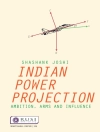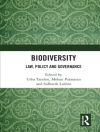The Handbook of Research Management is a unique tool for the newly promoted research leader. Larger-scale projects are becoming more common throughout the social sciences and humanities, housed in centres, institutes and programmes. Talented researchers find themselves faced with new challenges to act as managers and leaders rather than as individual scholars. They are responsible for the careers and professional development of others, and for managing interactions with university administrations and external stakeholders. Although many scientific and technological disciplines have long been organized in this way, few resources have been created to help new leaders understand their roles and responsibilities and to reflect on their practice.
This Handbook has been created by the combined experience of a leading social scientist and a chief executive of a major international research development institution and funder. The editors have recruited a truly global team of contributors to write about the challenges they have encountered in the course of their careers, and to provoke readers to think about how they might respond within their own contexts.
This book will be a standard work of reference for new research leaders, in any discipline or country, looking for help and inspiration. The editorial commentaries extend its potential use in support of training events or workshops where groups of new leaders can come together and explore the issues that are confronting them.
Inhoudsopgave
SECTION I: GETTING STARTED
Preparing for a Research Career – David Stone and Robert Gutierrez
Planning and Project Management – Bob Anderson
Responding to a Call – Rajika Bhandari and Jonah Kokodyniak
Getting Funded for the First Time – Daniella Sarnoff
Winning Large Grants – Paul Martin
Developing a Project and Choosing a Funder – Amarjit Kaur
SECTION II: DEVELOPING THE PROPOSAL
Developing and Managing Budgets – John Koprowski
Supporting Management with Technology – Zachary Zinn
Incorporating Gender and Diversity – Lut Mergaert and Maxime Forest
Securing Access – Oscar Salemink
Considering Ethics for Social Science Research – Michelle Mc Ginn
Managing Researcher Safety – Desmond Arias
SECTION III: GETTING ORGANIZED
Organizing and Managing Research – Josh De Wind
Engaging the University Administration – Mike Saks
Collaborating Across Disciplines – Michael Davis
Developing and Executing Cross-National Projects – Ivy Bourgeault, Yvonne James and Corinne Packer
SECTION IV: MANAGING IN DIFFERENT ENVIRONMENTS
Succeeding in a European Research Environment: Eleven Lessons from Denmark – Maja Horst and Alan Irwin
Negotiating in a US University Environment – Barbara Stallings
Managing Research in a Developing Country – Hy Van Luong
Promoting Research and Development in Large Organisations – Michael Hewitt
Working Outside Universities – Josefina Card
Managing the Private-Sector Research Project – Sam Ladner
SECTION V: MANAGING THE PEOPLE
Promoting Teamwork, from Within and from Afar – Mark Van Landingham
Enacting Leadership in Research Programmes – Graeme Currie
Surviving and Progressing as a Research Fellow – Sarah Dyer and Kate Weiner
Making Best Use of Research Administrators – Sophie Dale-Black
Hiring, Integrating and Removing Team Members – Erin Johnson
Mentoring, Appraising, Ensuring Professional Development and Evaluating Performance – Judith Tanur
SECTION VI: PLANNING FOR IMPACT
Achieving an Impact – Caitlin Porter and Michael Hewitt
Exchanging Knowledge in the Humanities and Social Sciences – Lisa Mooney
Marketing the Team – Neil Robinson
Planning for Publications – Mary-Lea Awanohara
Mobilizing and Disseminating Research Findings Through Informal Mechanisms – Anil Deolalikar
SECTION VII: DELIVERING IMPACT
Planning and Executing “the Book” – Frank Baldwin
Working with Print and Online Journalism – Charles Burress
Working with the Broadcast Media – Toby Murcott
Crafting Strategic Events to Strengthen Research Outputs and Disseminate Results – Nicole Restrick Levit
Using Graphics in Print and Presentations – Steve Kosslyn
SECTION VIII: BEYOND THE CURRENT PROJECT
Developing a Research Strategy at a Research Intensive University: A Pro Vice Chancellor’s Perspective – Teresa Rees
Using Research Process to Improve Research Practice – Jacqueline Williams Kaye
Moving on? – Barbara Czarniawska
Over de auteur
Mary Mc Donnell is executive director and chief operating officer of the Social Science Research Council and leads the Council’s capacity strengthening, fellowships, and Asia-focused work. Mc Donnell has a Ph D in history and master’s degrees in both international affairs and journalism from Columbia University. She worked as a journalist covering Asian and Middle Eastern affairs before joining the Council full time in 1986, where she became founding director of the Abe Fellowship and Vietnam Programs. She is currently leading a decade-long, qualitative and quantitative assessment of population health in rural Vietnam. Mc Donnell chairs the Board of Trustees of the School for Social Development and Public Policy at Beijing Normal University and serves on the advisory board of the Mobilising the Humanities project of the British Council. She is also a founding member of the board of a new NGO, Resources for Health Equity.












